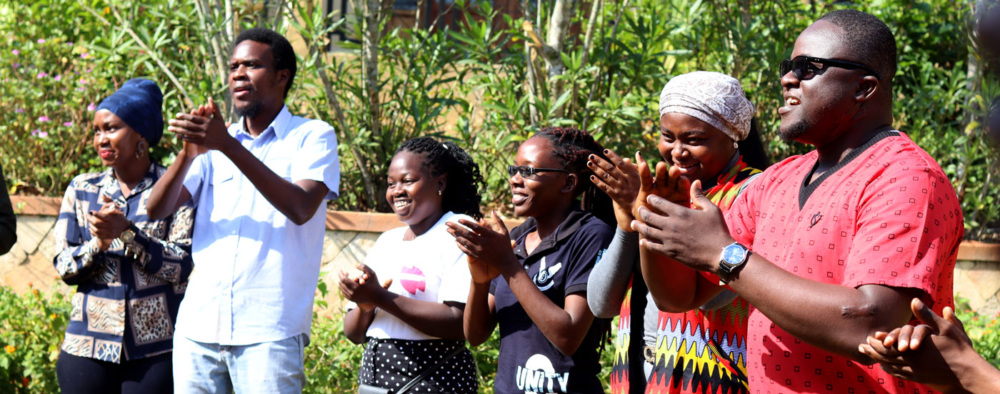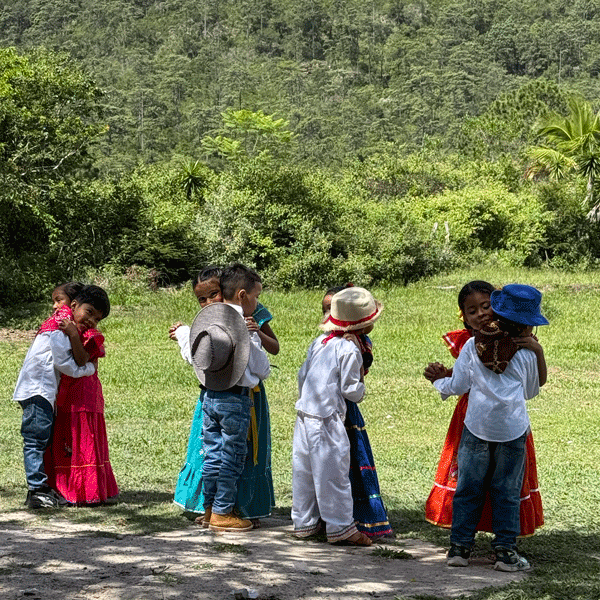
Educação
Educação
“Os adultos querem ver um adulto numa criança em vez de ver uma criança numa criança”, disse Joseph Sinyangwe de Mãos criativas.
Esta é uma das declarações mais poderosas que saíram da iniciativa PEAK da crise financeira global reunindo-se em Uganda. Os parceiros do GFC PEAK de Gana, Quênia, Uganda e Zâmbia se reuniram para se conectar, compartilhar experiências e explorar algumas das metodologias baseadas em brincadeiras que eles usam em seu trabalho para ajudar as crianças a gostarem de aprender.
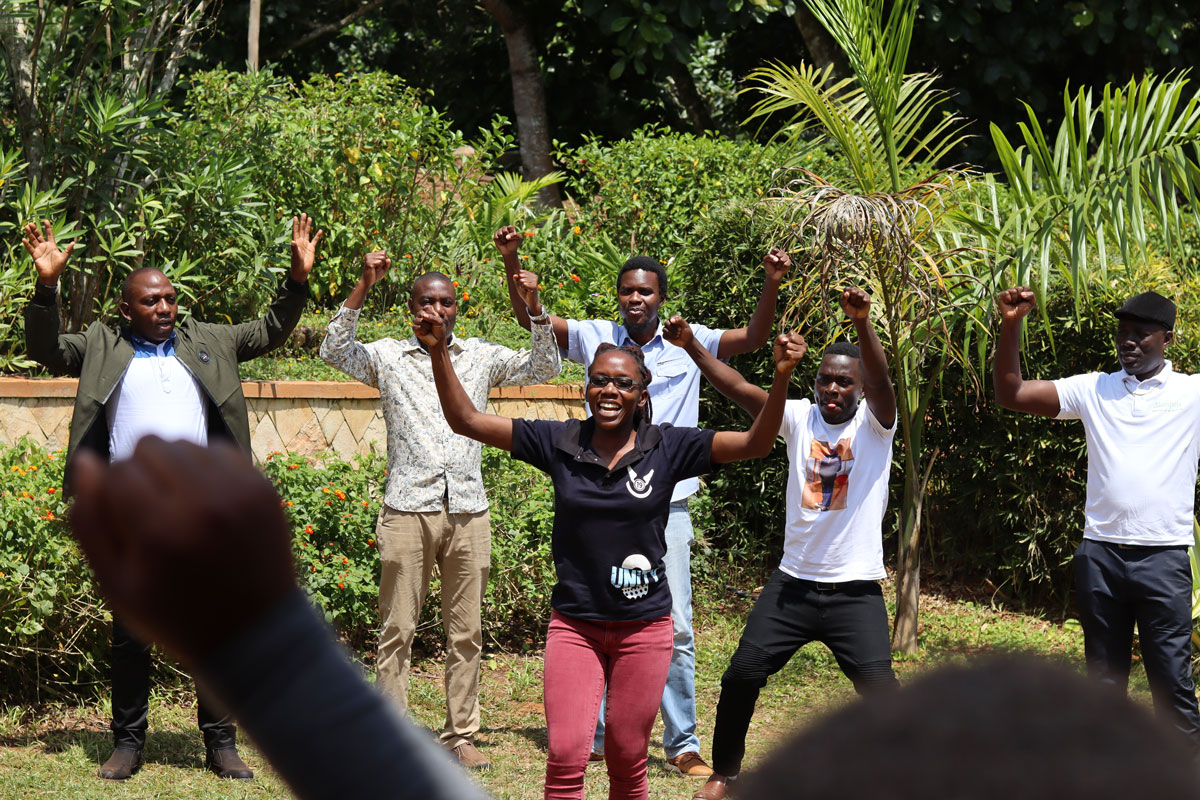
Muitos adultos subestimam o valor intrínseco da brincadeira no desenvolvimento holístico de uma criança. Em alguns casos, eles não pensam na brincadeira como uma forma eficaz de permitir que as crianças aprendam algumas das lições mais importantes da vida. Os parceiros da iniciativa PEAK em todo o mundo estão mudando a narrativa e promovendo o amor pela aprendizagem através de abordagens lúdicas.
Com o apoio de a Fundação LEGO, os parceiros da iniciativa PEAK em todo o mundo estão empregando maneiras inovadoras de superar as barreiras de aprendizagem exacerbadas pela pandemia da COVID-19. A iniciativa apoia a aprendizagem e o desenvolvimento de crianças de 6 a 12 anos, permitindo que organizações locais sustentem ou expandam seu trabalho e desenvolvam sua capacidade de integrar aprendendo através da brincadeira.
Na reunião, os parceiros do GFC identificaram alguns dos benefícios de aprender por meio de brincadeiras, ao mesmo tempo em que destacaram como isso permite que as crianças alcancem seu potencial máximo. Isto é o que eles compartilharam sobre por que aprender por meio de brincadeiras é importante:
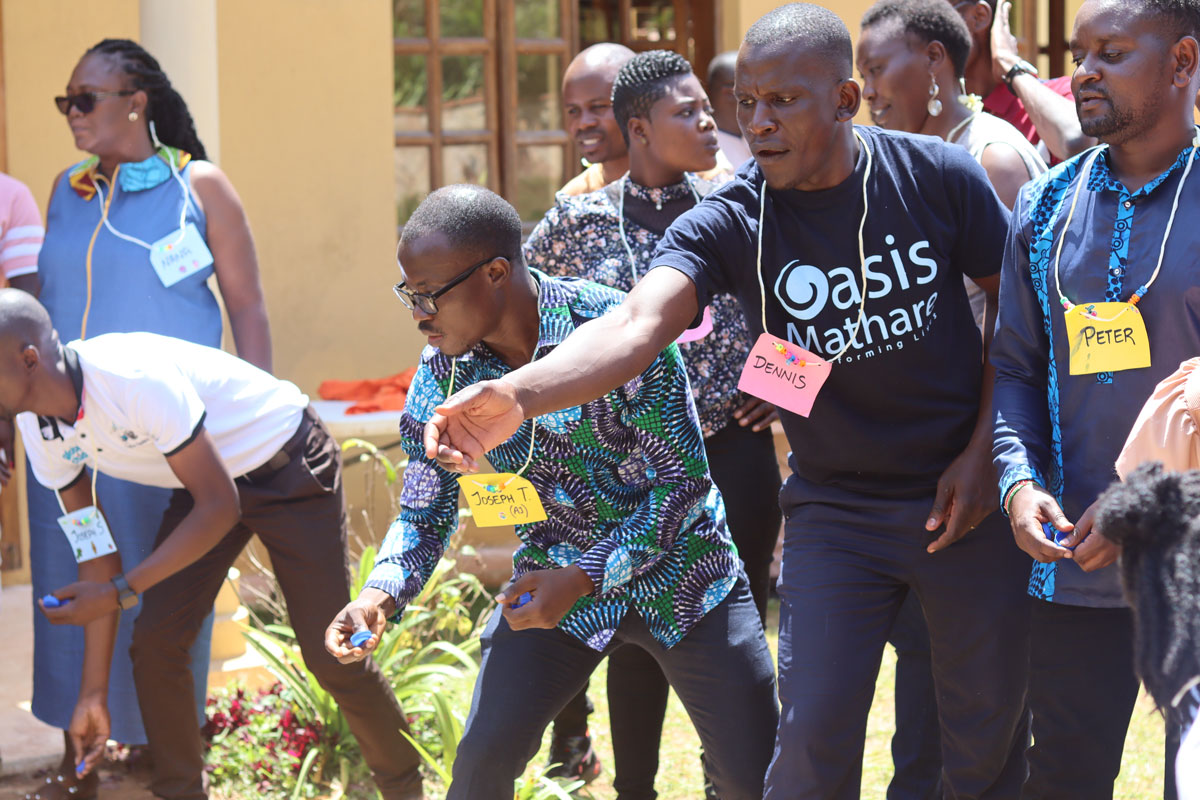
Ferramentas e recursos para brincar estão prontamente disponíveis ao nosso redor. Materiais que muitas vezes tomamos como garantidos são usados criativamente pelas crianças para tornar a brincadeira mais divertida e agradável. A brincadeira permite que as crianças aproveitem sua imaginação, pensem fora da caixa, usem qualquer coisa que encontrem em seus arredores e criem sua própria diversão.
“Brincar dá às crianças a liberdade de pensar, explorar, ser criativas e, no processo, aprender”, Murielle Maupoint da Jogue Ação Internacional explicado durante uma sessão sobre como impulsionar a educação por meio da brincadeira.
Triumph Tetteh da GFC Partner Tecnologia de Iniciantes ecoou essa ideia. “Na África, podemos usar coisas em nosso entorno. Tudo o que precisamos fazer é sair, pegar uma pedra, fazer um brinquedo e começar a brincar.”
Na reunião, os parceiros tiveram a oportunidade de usar fibras de bananeira, folhas e gravetos disponíveis localmente para fazer bolas, bonecas e cordas de pular que podem ser usadas em brincadeiras.
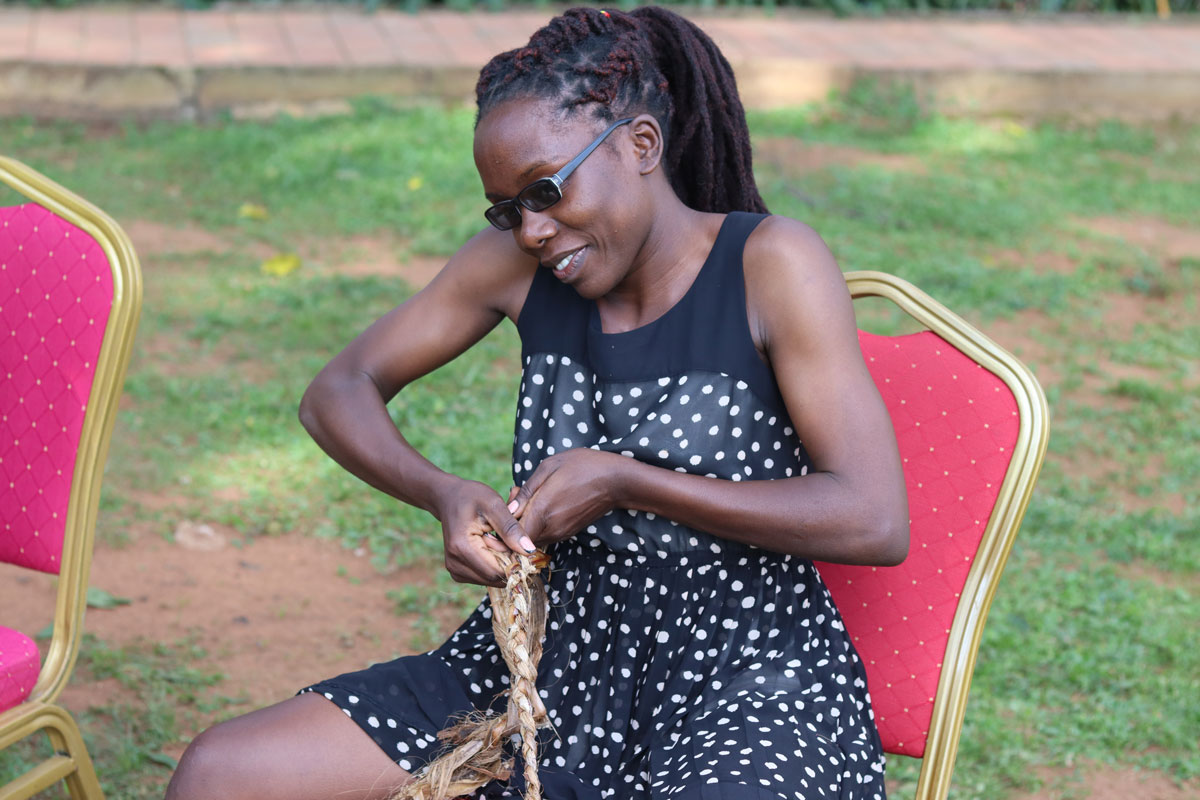
Algumas crianças são introvertidas e têm dificuldade para falar ou participar ativamente em um ambiente de sala de aula. Aprender por meio de brincadeiras é uma maneira alternativa de construir sua confiança e permite que as crianças construam a confiança umas das outras. Brincar promove a independência e permite que as crianças experimentem enquanto, ao mesmo tempo, reconhecem seu valor próprio.
“A diversão é a razão pela qual as crianças gostam de aprender”, disse Zico Ishaq Abubakar Newton, outro parceiro do PEAK, Fundação Mãe de Todas as Nações.
Todas as crianças adoram diversão, e você pode esperar excitação e engajamento total quando o aprendizado é divertido. Quando o aprendizado é tornado interessante e lúdico, ele atrai crianças que de outra forma não participariam.
Diferentes tipos de brincadeiras oferecem diferentes tipos de benefícios de desenvolvimento para as crianças. Por meio da iniciativa PEAK, os parceiros do GFC trocaram conhecimento sobre alguns dos jogos e atividades que garantem que todas as crianças participem e aprendam, independentemente de seus desafios individuais. Algumas das estratégias baseadas em brincadeiras promovem o uso da linguagem de sinais para se comunicar. Outras exigem pensamento crítico, resiliência, confiança e outras habilidades de vida que garantem que nenhuma criança seja deixada para trás.

Alguns talentos e habilidades únicas em crianças podem ser descobertos durante suas brincadeiras. O aprendizado baseado em brincadeiras ajuda pais e professores a entender as crianças e nutrir seus talentos enquanto elas ainda são jovens.
Brincar ajuda as crianças a desenvolver habilidades interpessoais que lhes permitem comunicar e desenvolver relacionamentos com outras pessoas.
Christine Jangwen da PEAK Partner Iniciativa BaNgaAfayo Uganda explicou, “É por meio da brincadeira e da socialização que as crianças aprendem. Viemos de países diferentes, não nos conhecíamos, mas como as sessões de convocação são mais lúdicas, interativas e divertidas, começamos a conversar uns com os outros e a construir redes.”
Aprender pode ser difícil, ainda mais quando se usam métodos tradicionais, que são menos interativos e participativos. Aprender por meio de brincadeiras é mais envolvente para as crianças, tornando mais fácil para elas compreenderem assuntos complicados.
Crianças em algumas das comunidades onde trabalhamos passam por dificuldades, e aprender que é emocionante é uma oportunidade para elas escaparem de suas realidades cotidianas. Aprender por meio de brincadeiras expõe as crianças a uma variedade de experiências em um ambiente relaxado e que permite que elas prosperem.
De acordo com Tetteh, “Quando uma criança entra na sala de aula, queremos dar a ela uma nova experiência, por isso adotamos a abordagem de aprendizagem lúdica”.
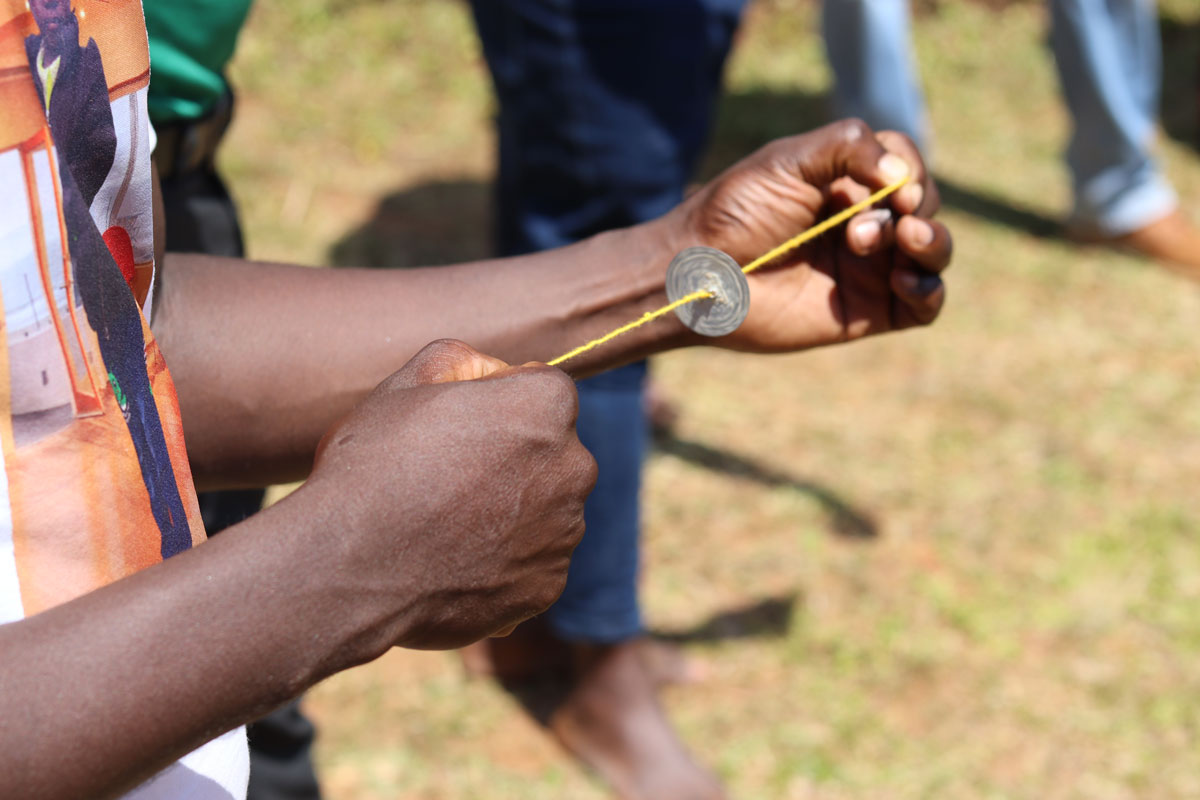
Para os parceiros da iniciativa PEAK na África, aprender por meio da brincadeira vai muito além de promover os resultados educacionais das crianças. Alguns parceiros são usando metodologias baseadas em brincadeiras para manter ou resgatar culturas indígenas.
A iniciativa PEAK resultou em redes mais fortes para advocacy e aprendizagem, permitindo assim que organizações de base se conectem e troquem ideias sobre inovações e diferentes abordagens para trabalhar com crianças.
O impacto do programa PEAK globalmente não pode ser exagerado. Ele está transformando as vidas de crianças e suas comunidades de uma forma positiva e significativa. Com o apoio da LEGO Foundation, a GFC está fornecendo financiamento e desenvolvimento de capacidade para 66 organizações de base em dez países. Somos imensamente gratos à LEGO Foundation por sua parceria, visão e apoio.
Foto do cabeçalho: parceiros do PEAK participando de uma atividade de aprendizagem experiencial. © GFC.
